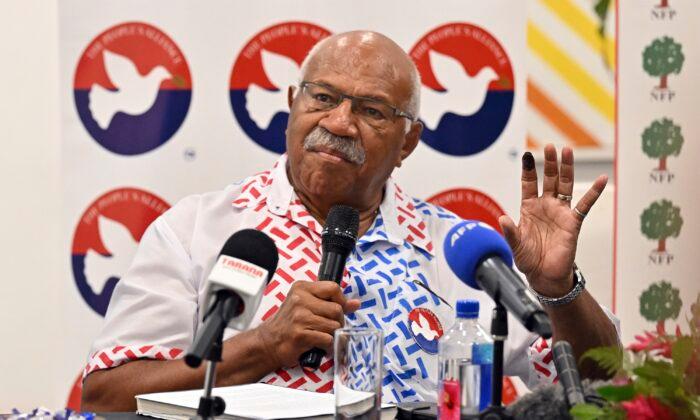New Fijian Prime Minister Sitiveni Rabuka has called on Australia and the United States to rethink their approaches to the strategic partnership with the Pacific country.
In an interview with the Australian Broadcasting Corporation, Rabuka said he thought that Australia and the United States had an antiquated way of approaching diplomatic ties and engagement with Fiji.
“Australia and New Zealand and the United Kingdom and America have sort of seen us as the output of their colonial regimes of the past and have not reorientated their thinking to the international landscape where we are all equal,” he said.
“There is no longer any recipient-donor relationship.”
Comparing the two partners to their Pacific rival, China, Rabuka noted he saw the Asian nation as having a different strategy.
“China has come in with a blank sheet of paper. They have seen us as just development partners,” Rabuka said.
China has been a longstanding partner of Fiji, with ties being established during a lull in diplomatic relations with Australia after the country went through a period of democratic instability following two military coups staged by Rabuka in 1987.
However, the former Colonel also said that while he believed Fiji did not need to strengthen security ties with allies like China, the new government would relook at the country’s strategic relationships with a view to keeping stability and peace in the region.
“We would not like to contribute to any disruptions and fractures of the current situation where we have a general sense of peace in the Pacific,” he said.
China’s reemergence, he said, had the potential to “reform the peaceful atmosphere we now have.”
“That is something we have to avoid, and it can be avoided by frank responsible dialogue,” Rabuka said.
Australia- and U.S.-Fiji Relations Firm, But China Lurking
The comments by Rabuka come as Australia, the United States, and their allies are currently engaged in a geopolitical war of influence in the Pacific with China. Both Australia and the United States have been sharply pivoting their development programs and foreign and military relations to focus on the region.“The whiplash reaction that we have now had from Australia and New Zealand and further abroad in America, and the U.S. policies in the region are now changing because of that,” he said.
According to Wesley Morgan, a research fellow from the Griffith Asia Institute, Australia’s relationship with Fiji is strong.
“In recent times, we’ve seen Australia actually building a military facility in Fiji, the Blackrock camp, and recently announced support for a new naval facility in Fiji,” Morgan said.
He also commended the United States for its renewed commitment and support towards adaptation and building resilience within the region.
However, despite this renewed engagement by Australia and the U.S., the Chinese regime is still a presence in the country.
Trade and diplomatic relations between Fiji and China ramped up after a coup in 2006 by former Prime Minister Frank Bainimarama led to an increase in trade between the two nations.
Rabuka, A Controversial Figure in Fiji
Formerly a decorated officer in the Fijian military, the new prime minister is seen by Fijians as a controversial figure known for his nationalism after personally seizing control of the state twice via a coup with the aim of installing a government that ethnic Fijians dominated.He has also faced intense criticism after calling for the nationalisation of indigenous land and for the abolishment of Fiji’s traditional chiefly system of government, both of which were highly criticised by political and traditional leaders in the country.




